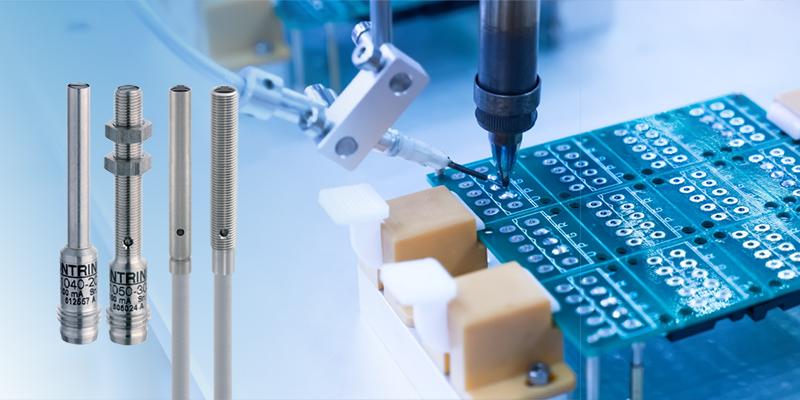In some applications, installation space is so limited that there is no room for photoelectric sensors. So optical fibers are often used, despite their higher installation cost. Now Contrinex has developed a new photoelectric sensor which, due to its extremely small size, offers the ideal alternative.
The sensor specialist has developed a 4 mm diameter or M5 threaded photoelectric sensor that is ideal for use in the robots, grippers, and small conveyors that must detect very small parts, typically in packaging, logistics, assembly and automation applications. All components of the miniature sensor, from the active light source with optics to the evaluation electronics and IO-Link connection, are combined in a robust stainless steel housing. Large, pre-calibrated sensing ranges of 12, 24, 60 or 120 mm for the diffuse type (LTR version) and up to 500 mm for the through-beam type (LLR version) allow easy installation. These miniature photoelectric sensors work with visible red light (630 nm), which simplifies adjustment. The switching frequency of 500 Hz to 2.5 kHz, which can be set via IO-Link, enables the integrated evaluation electronics to detect very small parts, such as wires, with great reliability even at high throughput.
Robust stainless-steel housing
The cylindrical housing in V2A stainless steel is mechanically very robust, has an IP67 protection rating and is suitable for embeddable mounting in both the 4 mm diameter version and the M5 threaded type. Thanks to the advanced focusing technology of its integral optics, the sensor’s light spot has a diameter of just 6 mm at a sensing range of 50 mm, depending on the model. This allows even the smallest parts to be reliably detected. The supply voltage of the miniature photoelectric sensor is in the range 10 to 30 VDC, the connection for power and data is either via a PUR cable or an M8 4-pin connector. Depending on the type of sensor, the weight of these tiny devices is 4, 12 or 30 g for connector, pigtail or cable versions. The permissible operating temperature ranges from -25 to +65°C (-13 to +149°F).
